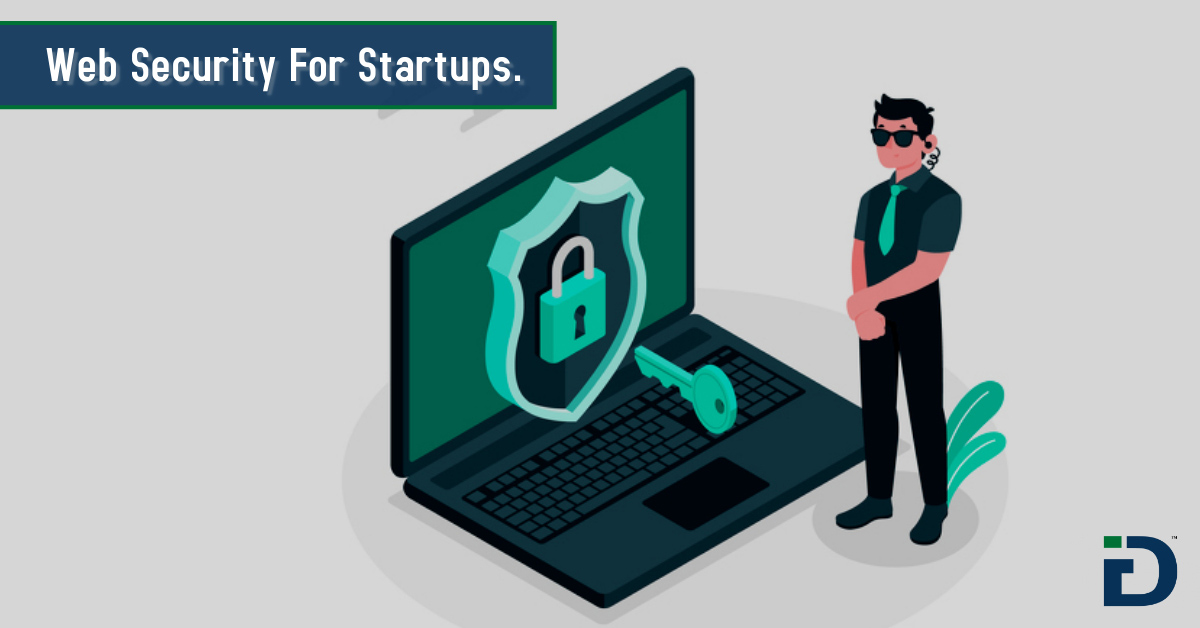

Contact
+91 8591174212Let's work together to bring your products and services to new digital heights!
Get in Touch

Sep 07, 2020

If you are a CEO of a juvenile business you might have pondered upon if web security is really a critical agenda. This is often in the minds of the CEO’s who own a relatively small business that doesn’t aim to cross national boundaries. However, every business, large or small, global or local, are at high risk from unethical hackers all around the globe. This is why website security is something that all CEOs should be worried about. The very initial step that needs to be taken is to evaluate the elements at risk to protect your firm with better cyber-security.
Evaluation of the at-risk factors of your company’s network security can ensure that the information you store and the business you conduct will remain solely between your customers and you. This drastically cuts down your chances of not only data loss but also malware and third-party breach. So what do these at-risk website elements do? It identifies any endangered factors in your hardware, network and systems and then takes corrective actions toward amending those weak links. These factors can be identified by the IT team or your digital marketing agency, solely to refine threat prevention and mitigation procedures.
Most of the businesses are dependent on the seamless communication and cooperation between their finance departments, legal teams and the Internet representatives in order to work with their IT team in regard to their precise network requirements. A vulnerability assessment should be considered as it will locate the data and applications that are made use of during the process of business, allowing you to keep a tight track on sensitive information sharing which could breach data privacy policies.
You need to look out for hidden sources of data that could authorize the sharing of secure information. This can be a high-risk event, particularly in the current cloud-based services you may subscribe to. A cloud-based storage system allows you to access data from anywhere and from any device. We recommend a vulnerability assessment in the very initial stages of business as it can identify the physical and virtual servers responsible for running necessary business operating applications that could be unprotected, inturn allowing sensitive data to be accessed without your knowledge.
Before we move to what best we can do to secure your website, let’s boil down to a question, Do you have any existing security measures?
Even a company as small as an MSME will already have some existing network protection, in the form of policies, virus protection measures, disaster recovery management, encryption of vital company data, firewalls to monitor inflow and outflow of the network data. Hence, it becomes critical to understand what your existing security measures and capabilities are so that any loopholes can be correctly addressed. To start with, you can scan your business network for any exposures, as this will give us the current state of your network security.
Cyber-security can seem like a very complex field, but the good news is there are a number of surprisingly simple and efficient things that can be done to increase web-security in your organization.

1. Training: The most delicate area of any business be it small or large, is employee accounts. This is also one of the most frequent targets for attacks by cybercriminals. This makes training a very vital element to prevent such malicious attacks. It is critical to ensure that staff members have been very well trained on various cybersecurity terminologies and remedies to stay away from cybercrime. Your workers are your company’s human barrier against cyberattacks, and the simplest and most efficient method of boosting your security is to train them appropriately. Ensure that all your workers are familiar with modern hackers and techniques so that they know the do’s and dont’s.
2. Perform Timely Updates: Any internet connection service is the first wall cybercriminals try to jump off. In fact, that’s they are always trying to exploit internet connection providers. Every device, application, connection and operating system should be kept up to date with its latest updates as their latest versions debug trending threats and cyberattacks keeping you more protected.
3. Asset Investment: The second thing cybercriminals often search for is a number of default settings in firewalls, switch and router loopholes that may be at risk. By getting access to these loopholes, they can gain access to your network by overcoming your company’s defense systems. This allows them to redirect traffic and being able to see private data. We recommend if you own any external hardware that is over five years old, it should be replaced. Also, do check to see that all existing hardware is accurately configured on the new external hardware.
4. Changing Passwords Frequently: Very frequently we forget our passwords. The only ones who remember may have the same password for various accounts or you note it down somewhere. The only way to defend yourself from cyber attacks is by generating strong passwords. Studies have shown that many people are reluctant towards changing their passwords, even if they have been using the same one for generations. It is therefore crucial to make an organizational rule that password updates/changes are mandatory for optimal network security.
5. Partner With An Application Security Vendor: An application security vendor will have updated technology to test your network’s vulnerability. Work with them closely to chalk down a plan to do periodic assessments. You should consider doing these checks on-demand security assessments as frequently as weekly or monthly. You can also consider deeper manual penetration testing and business logic assessment as and when the application has a major update.
Final thought:
Technology trust is a good thing, but control is a better thing.
Let’s build a smarter, more connected future for your business. Get in touch with us today!

Office Address
6th Floor, Office Number 603, Ashok Premises, Old Nagardas Crossroad, Opposite Saraswati Towers, Andheri East, Mumbai, Maharashtra 400069
info@idigitize.co
Contact
@ 2024, iDigitize I All Rights Reserved I Designed, Developed & Managed By iDigitize Infotech LLP